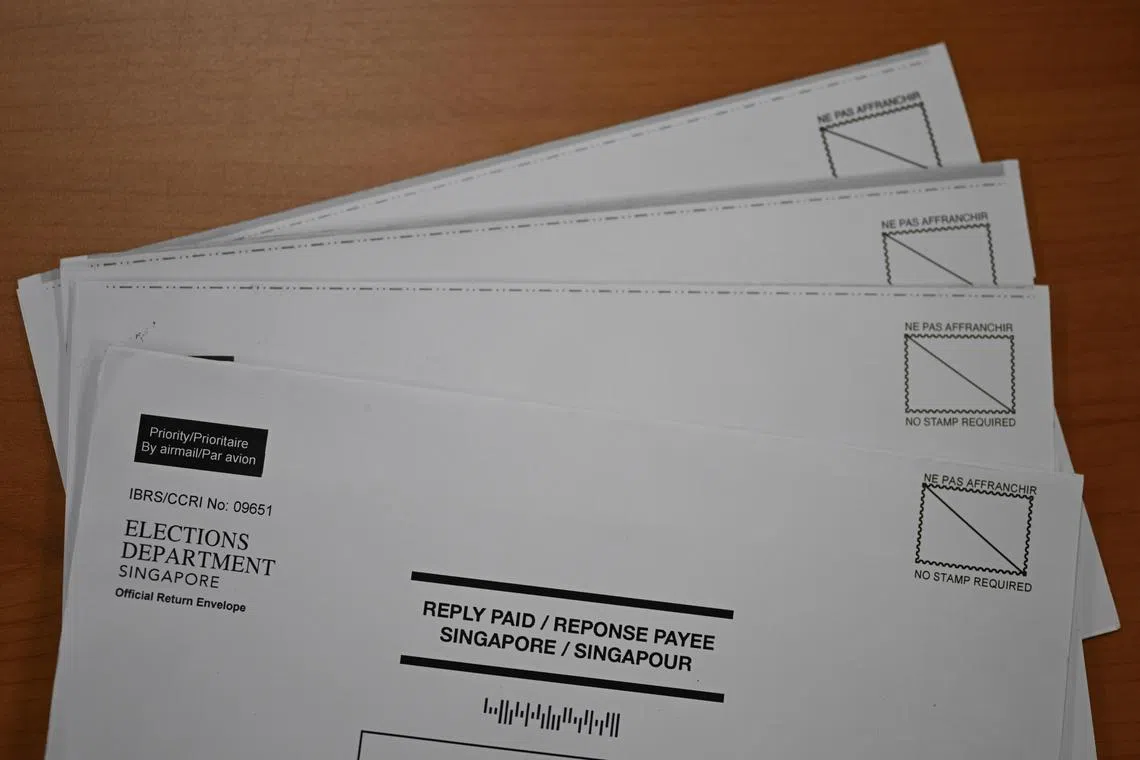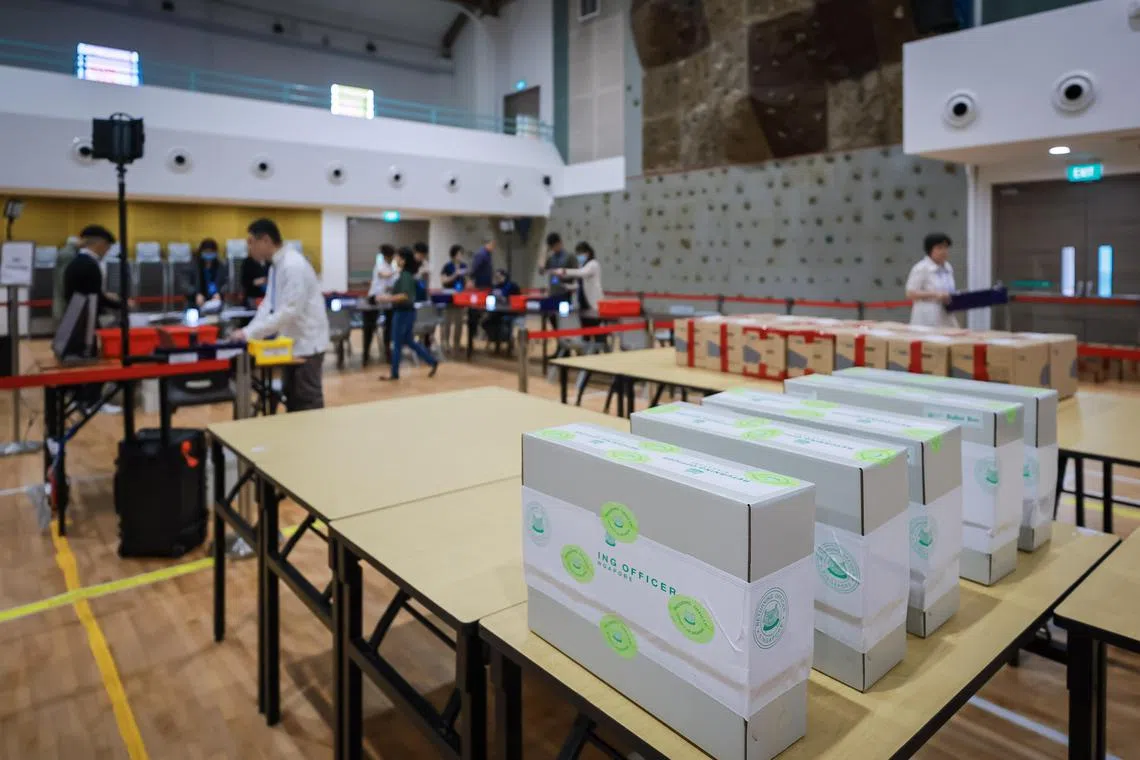2 in 5 postal votes for presidential election that arrived on time disallowed for counting: ELD
Sign up now: Get ST's newsletters delivered to your inbox

Disallowed envelopes were shown to the counting agents who were present before being rejected.
PHOTO: ST FILE
SINGAPORE - Three days before Singaporeans went to the polls to pick the Republic’s ninth president,
Dr Ong, who was travelling in Europe when the writ of election was issued, dropped his envelope into one of the iconic red post boxes in London on Aug 29. He thought this was early enough to meet the deadline for postal votes to be received, which is 10 days after Polling Day that was on Sept 1.
But to date, he has not received an e-mail from the Elections Department (ELD) to confirm receipt of his vote, nor has there been a change in the status of his return envelope under “Voter Services” on ELD’s website.
Singapore’s first attempt at postal voting for overseas voters
These return envelopes were found torn, unsealed or opened, or had absent, faint, illegible or late postmarks, said ELD.
The remaining 1,345 postal votes were accepted and counted, ELD said on Tuesday – a fraction of the 3,432 postal voters who had opted to vote by post.
Overseas Singaporeans who voted by post told The Straits Times that they found the process straightforward, but were ambivalent about the “success rate” given the steps they had to go through, including uploading a wet-ink specimen signature during registration.
Business development director Ng Boon Teck, who lives in Hanoi, told ST he passed his sealed return envelope to be dropped off locally by a friend who returned to Singapore on Sept 5.
Mr Ng, 52, said voting by post was easy, and there were e-mail notifications at each point of the process, including one from ELD thanking him for his vote.
But some, like Dr Ong, said the process was subject to vagaries such as the varying reliability and practices of different countries’ postal systems.
Responding to queries from ST, ELD said overseas voters whose return envelopes were received by Sept 11 and processed for counting would have received an e-mail notification. They may also check the status of their return envelopes at the ELD website’s Voter Services.
Disallowed envelopes were shown to the counting agents who were present before being rejected, ELD added.
Dr Ong believes his vote was in this group. “While I am disappointed that my vote didn’t count, statistically it would not have made a difference either way,” he said on Friday.
Former senior minister Tharman Shanmugaratnam won the election with 70.41 per cent of the vote, and was sworn in as president on Thursday.
Dr Ong added: “It’s good that these teething pains can be ironed out in a straightforward election like this, rather than complicating a highly contentious one.”
He suggested that a change ELD can make for future elections is to notify voters why their ballots were not counted.
ELD said that for future elections, it will consider ways to encourage overseas voters to mail their return envelopes back early.
The department said it will also explore ways to remind voters in regions and countries that may not postmark business-reply envelopes to affix stamps, as return envelopes had to be postmarked by Aug 31, the eve of Polling Day.
It had found in a trial before the election that countries and territories with this practice are Israel, Oman, Saudi Arabia, Turkey, United Arab Emirates, Cambodia, Indonesia, Laos, Thailand, Vietnam, Australia, Bangladesh, Belgium, Brazil, Ghana, India, New Zealand, South Korea and Taiwan.
E-mails were sent to overseas Singaporeans on Aug 15, advising them to use postage stamps on their return envelopes, especially if they resided in these countries.

Ballot boxes and Singpost boxes containing overseas votes awaiting counting at the Elections Department on Sept 12.
ST PHOTO: GAVIN FOO
“ELD will also look to engage with foreign postal services to see how they could assist to clearly postmark the business-reply return envelopes to address the issue of no, faint or illegible postmarks,” the department added.
Those who had downloaded the return envelopes and postal ballot papers will not be struck off the register of electors.
Aside from overseas postal voters, 2,454 other overseas voters cast their votes at the 10 overseas polling stations in Beijing, Canberra, Dubai, Hong Kong, London, New York, San Francisco, Shanghai, Tokyo and Washington.



